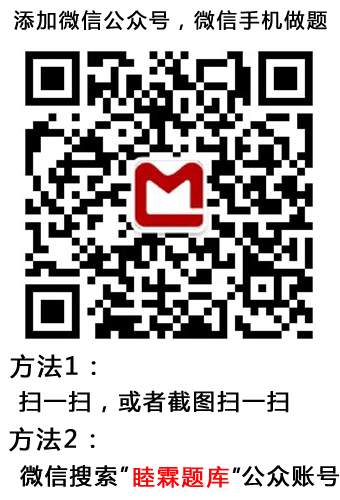试题详情
- 单项选择题 Teaching Children to Spend Pocket Money Wisely School-going children need pocket money for food, stationery and bus fares. Parents give pocket money to their children in different ways. Some give a lump sum at the beginning of a month or a week. ____1____ The way in which pocket money is given affects how money is spent or saved. On the other hand, the children's spending habits may affect how pocket money is given. Pocket money given on a daily basis is sometimes termed as "food money". ____2____ They learn how to manage small sums of money. As the money is limited, they have to control their spending. Some parents choose this method of allocating pocket money in order to prevent their children from overspending, hoping that in time they can be trusted with larger sums of money. ____3____. Giving pocket money on a daily basis places responsibilities of budgeting on the parents, instead of the child. The child may spend every single cent of the daily pocket money by overindulging in junk food, as they know they will get another sum of money the next day. This results in children being short-sighted in their spending. ____4____ They may develop the mentality that money is meant to be spent. Others spend more than they are given. They borrow from their siblings or their classmates when they feel like indulging themselves. Then they may ask for money to pay off their debts. This habit of borrowing causes them to depend on others to solve their problems. ____5____. ____5____内应选()
A、There is no better way to teach children to manage money than to start with their pocket money.
B、The thought of saving money never crossed their minds.
C、Children usually use the pocket money to buy food during recess and also at lunch hour if they have school activities in the afternoon.
D、Others prefer to give pocket money on a daily basis.
E、Parents who earn daily wages may also opt for this due to financial constraints.
F、In such instances, the purpose of rationing is defeated.
- F
关注下方微信公众号,在线模考后查看

热门试题
- Learn from Mistak
- Dreams Dreams d
- Moderate Earthqua
- Spiritual Bond
- As Christmas is c
- Marriage Advertis
- 300 Hurdles Now
- 请根据下列材料写一篇150词左右的英语
- Moderate Earthqua
- Personal Finance
- Dreams Dreams d
- Good Communicatio
- Marriage Advertis
- 短文写作 健康一直是人们关注的问题,请
- As Christmas is c
- Moderate Earthqua
- Personal Finance
- The easy way out
- Moderate Earthqua
- Overcoming Diffic